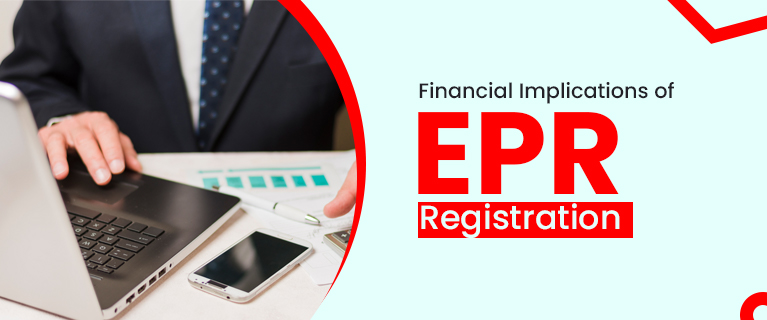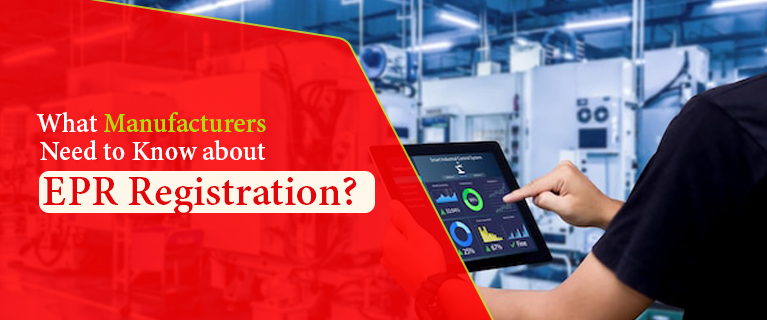Financial Implications Of EPR Registration
Extended Producer Responsibility (EPR) is a regulatory approach that holds producers accountable for the end-of-life management of their products, including their disposal and recycling. EPR registration has gained significant traction worldwide as a means to promote sustainable waste management and resource conservation. While EPR registration brings several environmental benefits, it also has financial implications for producers. In this blog, we will delve into the financial aspects of EPR registration, including the costs and benefits associated with its implementation.
1. Compliance Costs:
One of the primary financial implications of EPR registration is the cost of compliance. Producers are responsible for meeting certain obligations, such as establishing collection and recycling systems, conducting awareness campaigns, and submitting periodic reports to regulatory authorities. These activities require financial investments in infrastructure, logistics, personnel, and administrative expenses. The costs vary depending on the size of the producer, the nature of the product, and the specific EPR regulations in place.
2. Product Design and Packaging:
EPR registration often necessitates changes in product design and packaging to enhance recyclability and reduce environmental impact. Producers may need to invest in research and development to redesign their products, use recyclable materials, or adopt eco-friendly packaging alternatives. While these changes may incur additional upfront costs, they can result in long-term savings by reducing waste generation and facilitating the recycling process.
3. Recycling and Disposal Fees:
EPR registration typically requires producers to pay recycling and disposal fees based on the quantity or weight of their products placed on the market. These fees contribute to the financing of collection, recycling, and waste management systems. The fees vary depending on the product category, and they can constitute a significant financial burden for producers, particularly those in industries that generate large volumes of waste.
Read Also This - The Role of EPR Registration in Building a Circular Economy4. Operational Efficiency:
EPR registration encourages producers to adopt more efficient production processes and optimise resource utilisation. By implementing measures to reduce waste, improve energy efficiency, and enhance product durability, producers can lower their operational costs in the long run. Efficient resource management not only benefits the environment but also contributes to cost savings and improved financial performance.
5. Market Differentiation and Brand Value:
EPR registration provides an opportunity for producers to differentiate themselves in the market and enhance their brand value. Demonstrating a commitment to environmental responsibility through EPR initiatives can attract environmentally conscious consumers and create a competitive advantage. Producers that proactively engage in sustainable practices and communicate their EPR efforts effectively may enjoy increased customer loyalty and market demand, translating into improved financial performance.
6. Circular Economy Opportunities:
EPR registration encourages a shift towards a circular economy, where products are designed, produced, and managed in a way that maximises resource efficiency and minimising waste. Adopting circular economy principles can unlock new business opportunities, such as product refurbishment, remanufacturing, and recycling services. By embracing the circular economy model, producers can create new revenue streams and diversify their offerings, contributing to long-term financial sustainability.
Read Also This - The Economic Benefits of EPR Registration7. Regulatory Compliance and Risk Mitigation:
EPR registration helps producers mitigate regulatory risks and avoid potential penalties associated with non-compliance. By fulfilling their EPR obligations and staying updated with evolving regulations, producers can ensure legal compliance and reduce the likelihood of fines or legal disputes. Proactive risk mitigation not only protects the financial interests of producers but also safeguards their reputation and fosters positive relationships with regulatory authorities.
8. Supply Chain Collaboration and Cost Sharing:
EPR registration encourages collaboration and shared responsibility throughout the supply chain. Producers can collaborate with retailers, distributors, and waste management entities to optimise collection, recycling, and disposal processes. Sharing the financial burden of EPR compliance among stakeholders can alleviate individual costs and improve the overall efficiency and effectiveness of waste management systems.
In conclusion, EPR registration carries financial implications for producers, encompassing compliance costs, product design considerations, recycling and disposal fees, and operational adjustments. While these financial obligations may initially pose challenges, they are accompanied by potential benefits such as improved operational efficiency, market differentiation, access to new markets, and reduced regulatory risks. By embracing EPR principles, producers can align themselves with sustainability goals, enhance their brand value, and contribute to a more circular and environmentally responsible economy. It is essential for producers to carefully evaluate the financial implications of EPR registration, balance costs and benefits, and develop strategies to optimise their sustainability efforts while ensuring long-term financial viability.
Read Also This - EPR Registration in the Digital Age



Comments
Post a Comment